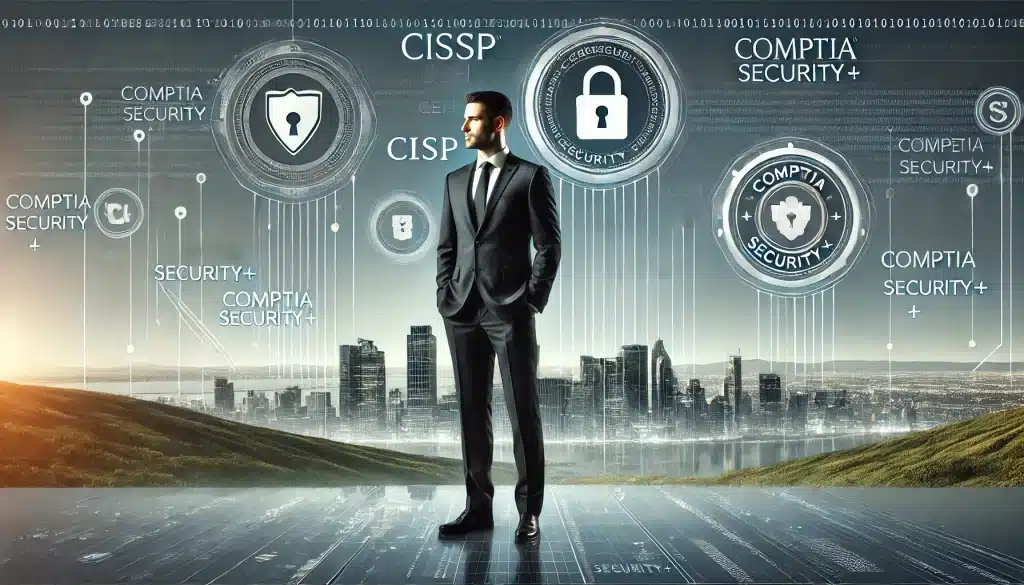The Importance of Cyber Security Certifications
Cybersecurity certifications play a crucial role in the industry. They validate your skills, demonstrate your commitment to the field, and can significantly enhance your career prospects. Chapter 9 of our eBook, “Starting Your Cyber Security Career: Building a Successful Career in Cyber Security,” discusses the importance of cyber security certifications and how they can help you advance in your cyber security career. Let’s explore why certifications are essential and which ones you should consider pursuing.
Why Cyber Security Certifications Matter
1. Validation of Skills and Knowledge
Certifications provide formal recognition of your skills and knowledge. They prove to employers that you possess the necessary expertise to perform specific tasks and handle security challenges.
- Benefits:
- Demonstrates competency
- Builds credibility with employers and clients
- Provides a competitive edge in the job market
2. Career Advancement
Earning certifications can open doors to advanced job roles and higher salaries. They can also make you eligible for promotions and more significant organizational responsibilities.
- Benefits:
- Increased job opportunities
- Higher earning potential
- Eligibility for senior roles and leadership positions
3. Staying Current with Industry Trends
Certifications require ongoing education and renewal, ensuring that you stay up-to-date with the latest developments in the field. This continuous learning helps you maintain your relevance and effectiveness as a cybersecurity professional.
- Benefits:
- Keeps you informed about new technologies and threats
- Encourages lifelong learning
- Ensures compliance with industry standards
4. Networking Opportunities
Certification programs often provide access to a network of professionals, forums, and events. This network can be invaluable for sharing knowledge, finding job opportunities, and collaborating on projects.
- Benefits:
- Access to professional communities
- Networking with peers and industry leaders
- Opportunities for collaboration and mentorship
Top Cyber Security Certifications to Consider
1. CompTIA Security+
CompTIA Security+ is an entry-level certification that covers fundamental security concepts, tools, and procedures. It’s an excellent starting point for those new to the field.
- Focus Areas:
- Network security
- Threats and vulnerabilities
- Compliance and operational security
2. Certified Information Systems Security Professional (CISSP)
CISSP is an advanced certification designed for experienced professionals. It covers various security topics and is highly regarded in the industry.
- Focus Areas:
- Security and risk management
- Asset security
- Security architecture and engineering
3. Certified Ethical Hacker (CEH)
CEH focuses on ethical hacking techniques and tools. It’s ideal for those interested in penetration testing and identifying vulnerabilities.
- Focus Areas:
- Ethical hacking methodologies
- Attack vectors and countermeasures
- Security testing and analysis
4. Certified Information Security Manager (CISM)
CISM is aimed at management professionals who oversee an organization’s information security program. It emphasizes governance and risk management.
- Focus Areas:
- Information risk management
- Governance and compliance
- Incident management
5. Offensive Security Certified Professional (OSCP)
OSCP is a hands-on certification focused on penetration testing. It requires practical experience and is highly respected for its rigorous exam.
- Focus Areas:
- Penetration testing techniques
- Exploit development
- Security assessment and reporting
How to Choose the Right Certification
1. Assess Your Career Goals
Consider your long-term career goals and choose certifications that align with your desired path. Whether you aim to specialize in ethical hacking, management, or risk assessment, there’s a certification that matches your aspirations.
- Questions to Ask:
- What are my career objectives?
- Which certification aligns with my goals?
- What skills do I need to develop?
2. Evaluate the Certification Requirements
Each certification has different prerequisites and requirements. Ensure you meet these criteria before pursuing a certification.
- Considerations:
- Required experience and education
- Exam format and content
- Continuing education requirements
3. Research the Certification Body
Choose certifications from reputable organizations recognized in the industry. Research the certification body and its credibility.
- Reputable Organizations:
- CompTIA
- (ISC)²
- EC-Council
- ISACA
- Offensive Security
Preparing for Certification Exams
1. Study Resources
To prepare for your certification exams, you should utilize various study materials, such as textbooks, online courses, and practice exams.
- Resources:
- Official study guides
- Online training platforms (e.g., Coursera, Udemy)
- Practice exams and labs
2. Join Study Groups
Participating in study groups can provide support, motivation, and additional resources to help you succeed.
- Benefits:
- Shared knowledge and resources
- Collaborative learning
- Peer support and motivation
3. Hands-On Practice
Hands-on experience is crucial for many certifications, especially those focused on practical skills like OSCP and CEH. To practice your skills, set up a home lab or use online platforms.
- Tips:
- Build a home lab with virtual machines
- Use platforms like Hack The Box or TryHackMe
- Practice real-world scenarios
Conclusion
Cyber security certifications are a vital component of a successful career in cyber security. They validate your skills, open doors to new opportunities, and ensure you stay current with industry trends. Choosing the proper certifications and preparing effectively can advance your career and achieve your professional goals.
For more detailed insights and guidance, download our free eBook, “Starting Your Cyber Security Career: Building a Successful Career in Cyber Security,” at https://lufsec.com/cyber-security-career-ebook. Stay tuned for more chapters as we explore this exciting and rewarding field.

